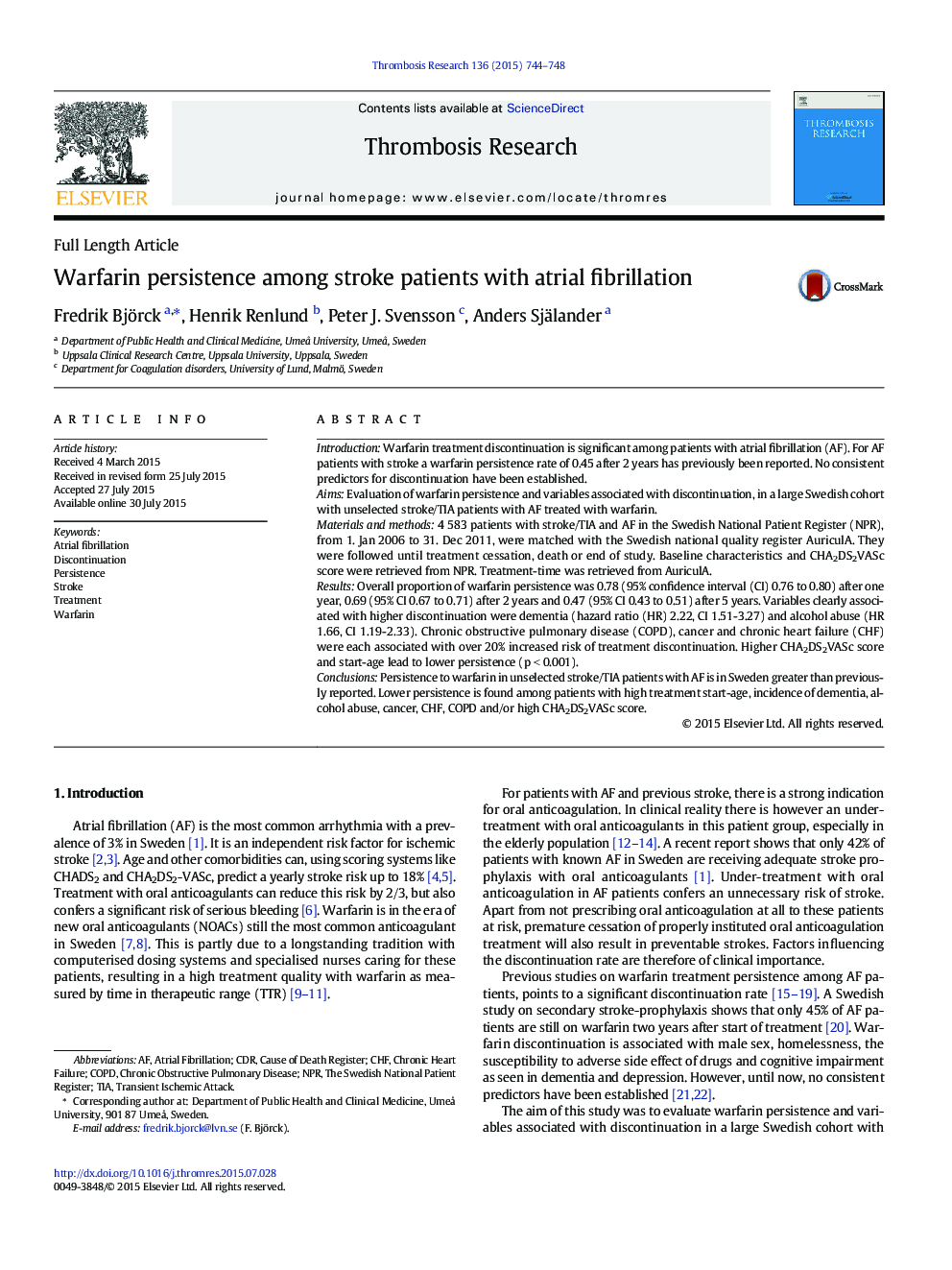| کد مقاله | کد نشریه | سال انتشار | مقاله انگلیسی | نسخه تمام متن |
|---|---|---|---|---|
| 6001445 | 1182950 | 2015 | 5 صفحه PDF | دانلود رایگان |
- Evaluation of warfarin persistence and variables associated with discontinuation.
- 4 583 Swedish stroke/TIA patients on warfarin due to atrial fibrillation examined.
- Persistence to warfarin was 69% after 2Â years, greater than previously reported.
- Higher discontinuation when dementia, alcohol abuse, cancer, COPD and/or CHF.
- Higher CHA2DS2VASc score and start-age lead to lower persistence.
IntroductionWarfarin treatment discontinuation is significant among patients with atrial fibrillation (AF). For AF patients with stroke a warfarin persistence rate of 0.45 after 2 years has previously been reported. No consistent predictors for discontinuation have been established.AimsEvaluation of warfarin persistence and variables associated with discontinuation, in a large Swedish cohort with unselected stroke/TIA patients with AF treated with warfarin.Materials and methods4 583 patients with stroke/TIA and AF in the Swedish National Patient Register (NPR), from 1. Jan 2006 to 31. Dec 2011, were matched with the Swedish national quality register AuriculA. They were followed until treatment cessation, death or end of study. Baseline characteristics and CHA2DS2VASc score were retrieved from NPR. Treatment-time was retrieved from AuriculA.ResultsOverall proportion of warfarin persistence was 0.78 (95% confidence interval (CI) 0.76 to 0.80) after one year, 0.69 (95% CI 0.67 to 0.71) after 2 years and 0.47 (95% CI 0.43 to 0.51) after 5 years. Variables clearly associated with higher discontinuation were dementia (hazard ratio (HR) 2.22, CI 1.51-3.27) and alcohol abuse (HR 1.66, CI 1.19-2.33). Chronic obstructive pulmonary disease (COPD), cancer and chronic heart failure (CHF) were each associated with over 20% increased risk of treatment discontinuation. Higher CHA2DS2VASc score and start-age lead to lower persistence (p < 0.001).ConclusionsPersistence to warfarin in unselected stroke/TIA patients with AF is in Sweden greater than previously reported. Lower persistence is found among patients with high treatment start-age, incidence of dementia, alcohol abuse, cancer, CHF, COPD and/or high CHA2DS2VASc score.
Journal: Thrombosis Research - Volume 136, Issue 4, October 2015, Pages 744-748
